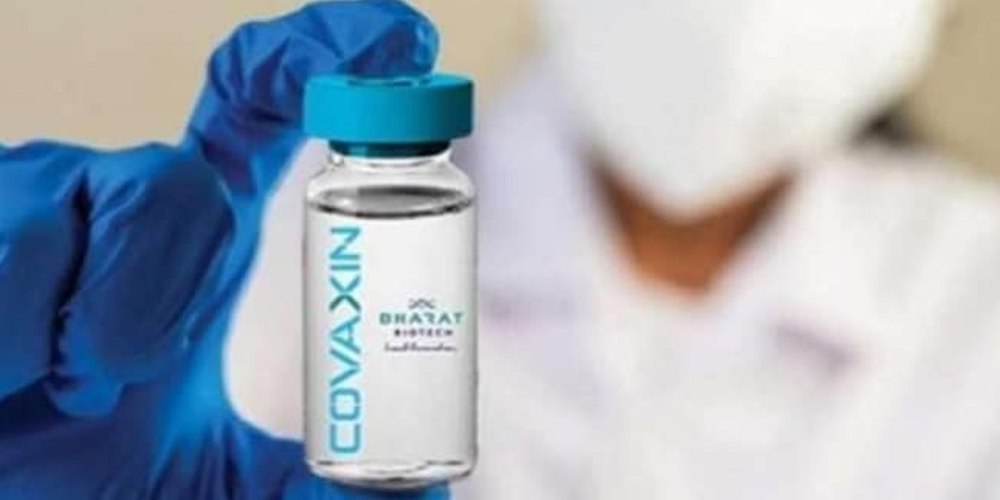Covaxin silences the naysayers and India-baiters

On the eve of Deepavali, India got, perhaps, the best gift from the World Health Organisation(WHO). The global body granted an emergency use license on October 3 to Covaxin, the coronavirus vaccine developed in India.
The U.N. health agency said in a statement that it had authorized Covaxin, made by India’s Bharat Biotech.
The action makes Covaxin the eighth COVID-19 vaccine to receive WHO’s green light. To date, the World Health Organization has granted emergency approval to the vaccines made by AstraZeneca and its partner, the Serum Institute of India, Pfizer-BioNTech, Moderna Inc., Johnson & Johnson, and the Chinese pharmaceuticals Sinopharm and Sinovac.
“This emergency use listing expands the availability of vaccines, the most effective medical tools we have to end the pandemic,” said Dr. Mariângela Simão, WHO’s assistant director-general for access to medicines.
WHO’s emergency use license for Covaxin should also mean that millions of Indians immunized with the shot will be allowed to travel internationally by countries that recognize vaccines authorized by WHO, including Britain, European Union members, the United States and Canada.
Covaxin is developed by Hyderabad-based Bharat Biotech in partnership with the Indian Council of Medical Research(ICMR), the government’s apex research body. The vaccine is made using a killed coronavirus to prompt an immune response and is given in two doses.
WHO said the vaccine was found to be about 78% effective in preventing severe COVID-19 and was “extremely suitable” for poor countries due to its much easier storage requirements.
It may be noted that India’s drug regulator had authorized Covaxin in January, months before extensive testing in people had been completed, prompting concern from health experts that the shot was given the nod prematurely.
Indian Prime Minister Narendra Modi took the first shot of the two-dose vaccine in March. By mid-October, over 110 million jabs of the vaccine had been administered, making Covaxin the second-most used COVID-19 shot in India after AstraZeneca’s.
In July, India’s Health Ministry said the company was making 25 million doses of the vaccine on average each month and expected to increase monthly production to 58 million doses.
The company says it’s aiming to reach an annual capacity of 1 billion doses by the end of 2021, or over 80 million shots each month.
Bharat Biotech said several other countries, including Brazil, Philippines, Iran and Mexico, also had authorized its COVID-19 vaccine. Before India paused exports, shots made by Bharat Biotech were sent to Myanmar, Paraguay and Zimbabwe as grants, and to Mauritius and Iran as a part of commercial deals. However, the federal prosecutor’s office in Brazil is investigating possible irregularities in the Health Ministry’s contract to buy 20 million doses of Covaxin.
WHO’s authorization of India’s Covaxin should silence those who have claimed that the experience and expertise to develop and manufacture life-saving medicines and vaccines do not exist in developing countries.
In fact, more than the foreign critics, it is some negative-minded Indians, particularly those politicians and activists opposed to Prime Minister Modi, who had given adverse publicity to Covaxin, despite it being India’s indigenous product.
Congress’s Gaurav Panndhi had stirred a social media storm after he posted an RTI document which said calf serum is used in the production of Covaxin in the initial stage of the Vero cell growth. Manish Tewari and Shashi Tharoor, both union ministers under former Prime Minister Manmohan Singh, had promoted the vaccine – hesitancy, saying “ we aren’t rats and guinea pigs”.
Samajwadi Party leader Ashutosh Sinha had claimed the vaccines may be used by the government to turn people impotent.
Bharat Biotech had also seen rivals’ conspiracy in all the criticism for the approval for Covaxin. Its CEO Krishna Ella believes that pharmaceutical rivals were conspiring to undermine the authority of Covaxin. He said that the gossip-mongering was an expansive conspiracy by its peers to undermine the reputation of Indian companies. “Many people are just gossiping to push things in a different direction to create backlash on Indian companies,” he told the press on January 4.”That is not right for us. We do not deserve that.
Bharat Biotech is no stranger to vaccine development and manufacturing. At the time it ventured into Covid19 vaccine, it already had 15 other vaccines for different diseases in the market, including the rotavirus vaccine that was developed after a decade of research. Its typhoid vaccine, based on an innovative technology and commercialized three years ago, is the only one in the world that provides long-term immunity against the disease. The typhoid vaccine is also approved by the WHO for global use.
Be that as it may, despite the controversies that dogged this vaccine since it received emergency authorisation from Indian regulators in early January 2021, approval of the Covaxin by the WHO is a big win for Indian science. In fact, the vaccine has inspired Indian science with the taste of success that innovation and application can bring.
The recognition also gives a boost to Covaxin’s use among the younger population. The vaccine has recently been approved for in India among people between the ages of 2 and 18 after successful trials in these age groups. No other vaccine in the world has been approved for children below five. Vaccination among younger children is still to start in India.



